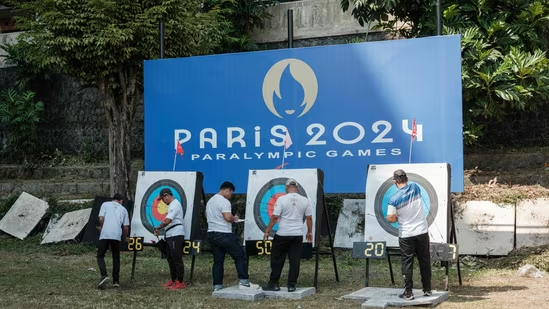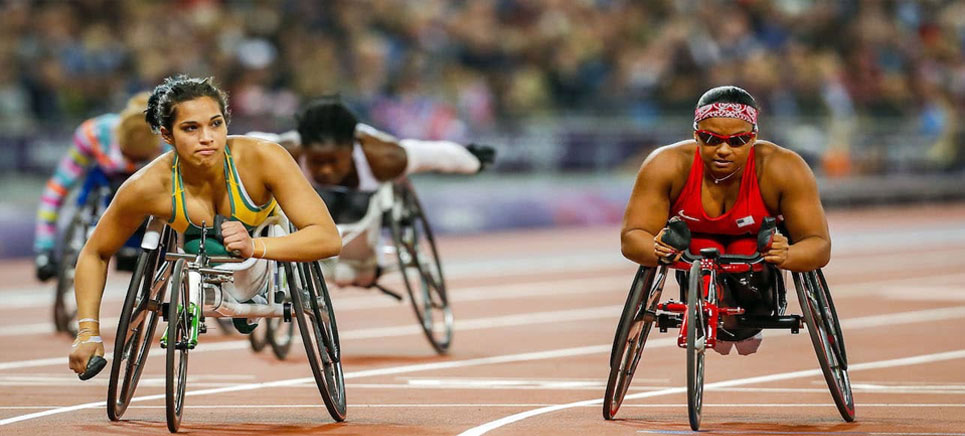Paris is buzzing with excitement as it hosts the Paralympics, showcasing its stunning landmarks and commitment to accessibility. Following a successful Olympic Games, the city has made significant strides in making its venues and public spaces more accessible for people with disabilities.
Historic locations like Place de la Concorde and the Eiffel Tower are now adapted for Paralympic events, featuring ramps, accessible seating, and better public transport. However, while these changes are commendable, there’s an underlying question: will Paris maintain its accessibility efforts once the spotlight from the Paralympics fades?
Accessibility at Iconic Locations
During the Paralympics, many of Paris’s iconic venues have been adapted to accommodate athletes with disabilities. Place de la Concorde, which hosted events like skateboarding and basketball during the Olympics, will now be the stage for the Paralympic opening ceremony.
By the Eiffel Tower, where beach volleyball took place, fans can enjoy blind soccer—a unique sport adapted for visually impaired players. Other famous sites, like the Grand Palais and Château de Versailles, are hosting wheelchair fencing and para-equestrian events, respectively. These adaptations show that accessibility and history can coexist, creating an inclusive environment for all.
Paris’s Commitment to Inclusivity

In preparing for the Paralympics, Paris invested heavily in infrastructure to support accessibility. Public transportation has been enhanced, with more accessible metro stations and buses. Temporary ramps and elevators have been installed at various tourist spots and competition venues.
The city has demonstrated that inclusivity can be part of its daily operations. Andrew Parsons, President of the International Paralympic Committee, emphasized the importance of this effort, saying, “We are at the heart of the city.” This central location signifies that the city itself is full of inclusivity on a grand scale, proving the Paralympics have influenced positive change.
Challenges Beyond the Games
Despite these positive developments, the real challenge begins once the Paralympics are over. It is essential for Paris to maintain these changes rather than treating them as temporary solutions for a global event. While the Paralympics bring much-needed attention to accessibility issues, there is a risk that the focus may shift once the games end.
Paris has a unique opportunity to set an example for future host cities by keeping these modifications as permanent fixtures. This would not only benefit residents with disabilities but also position Paris as a truly inclusive tourist destination for all.
Inspirational Stories of Resilience
The Paralympics are more than just a sporting event; they are a celebration of human resilience and determination. Athletes like Avani Lekhara, who is set to defend her gold medal in para shooting, exemplify the spirit of these games.
Stories of triumph are everywhere—from Blake Haxton, preparing for his third Paralympics with renewed focus, to Italian fencer Bebe Vio, who has overcome significant physical challenges to compete at the highest level. These athletes inspire millions, demonstrating that anything is possible with the right support and opportunities.
A Lasting Legacy for Paris?
The success of the Paralympics in Paris has the potential to leave a lasting legacy. With nearly 2 million tickets already sold, it is clear that there is a strong public interest in these events. The improvements made to the city’s infrastructure could serve as a foundation for future accessibility projects, making Paris a model of inclusivity.
However, achieving this will require ongoing commitment from city officials, businesses, and residents. By keeping accessibility at the forefront of urban planning, Paris can ensure that its recent progress does not fade away with the end of the Paralympics.
Paris’s efforts to make the city more accessible for the Paralympics are commendable. From iconic venues to improved public transport, the city has shown that it is capable of adopting inclusivity. However, the true measure of success will be whether these changes last beyond the games.
By committing to long-term accessibility, Paris can set a powerful example for other cities around the world, proving that inclusivity should be a permanent priority, not just a temporary adjustment for global events like the Paralympics.






